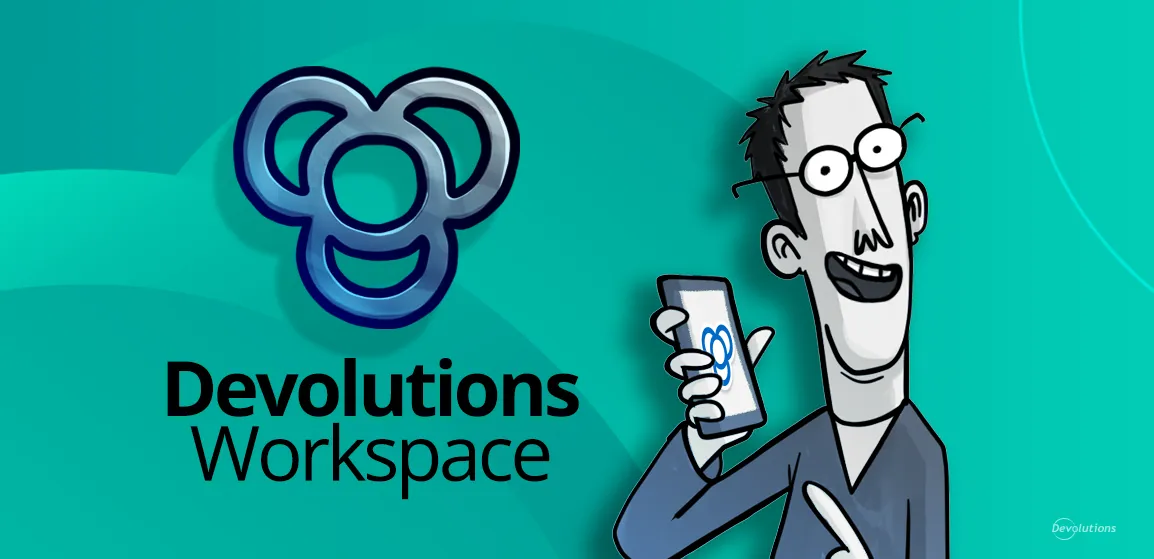The following is a guest blog written by highly experienced IT pro Francois Fournier. Francois was one of the very first RDM users, and he has been a valued and important part of our community for more than a decade. You can learn more about Francois here.
Picture This Scenario…
You are on vacation and spending the day scuba diving. It’s a beautiful sunny day, you’re having a nice time with the marine life that surrounds you, and you’re definitely not thinking about work.
When you make your way back to the beach, however, your phone starts beeping and beeping — and it won’t stop. Email after email, text after text, and a whole bunch of missed calls. What in the world is happening?
As you make your way through all of the messages, you realize the crucial systems at work have completely shut down. What’s more, you are the only one in the company who knows how fix the problem. You know the systems like the back of your hand, and for years you’ve kept that vital knowledge stored in your brain — because you believe keeping it there gives you essential job security.
And so, you do what you’ve always done during IT crisis situations: you cut your vacation short and head back to work to save the day.
But is this really job security?
As you and everyone else have come to expect, after spending several hours doing things that nobody else in the company can comprehend, the systems are back up. But instead of getting a pat on the back, questions start popping up from the management team like:
- Why did the systems go down in the first place?
- Why did it take so long to get them back online?
- How much money did we lose?
- How much money could we lose in the future?
As they ask these questions, the management team slowly realizes that there is no documentation, backup system or work alternatives. There is only YOU. And that leads them to ask a very different kind of question: Are you an indispensable and invaluable asset, or in fact the company’s biggest liability?
A Different Scenario…
Let’s return to the beautiful beach. You’re back to having a wonderful time scuba diving. When you head back to the beach, you hear the sound of the waves, seagulls — not your phone blowing up with calls, emails and texts.
You finish your vacation as scheduled and head back to work. Your boss calls you into his office and says that, while you were gone, the systems went down — and the company started losing money. The management team wanted to know what was being done to fix this. Here is what your boss told them:
“Right now our best tech is on vacation. But we have other qualified staff who are working on the problem, and we’ll have the systems back up in a short period of time. We can do this because our best tech created great documentation and procedures, and he also shared his knowledge with our team. They were prepared to handle this kind of emergency, and everything is moving ahead according to the plan we’ve put in place.”
Instead of going into a panic, the management team was impressed with what your boss had to say. They also said that when you return to work, they would like you to confirm that everything with the system is in top shape, and to identify any training or documentation opportunities.
Once that is done, they would like you to analyze another set of systems that currently lacks documentation and procedures, because the tech in charge of them does not want to share his knowledge. For this reason, that tech is being let go. He is very smart, but unfortunately too much of a potential risk.
The New Reality
The scenarios above illustrate the old reality and the new reality.
In the past, job security was rooted in being the smartest person in the company (or at least the IT team), and having knowledge that nobody else possessed. Basically, management was too afraid to lose these “wizards” and “gurus”, because it would lead to chaos and be extremely costly.
But now, companies are realizing that indispensable IT pros who hoard knowledge are liabilities rather than assets. Instead, companies are trusting and promoting and prizing IT pros who are (obviously) very knowledgeable and talented, but who are also capable of cultivating a quality environment with proper documentation and procedures – which makes their team smarter and their company stronger.
In other words, when it comes to job security on today’s business landscape, it’s a mistake for IT pros to be indispensable, and wise for them to empower others!




